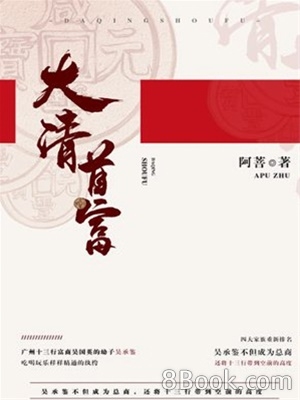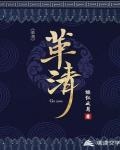Volume 2 Chapter 44: Three Miles
Wanyan Wushu's strategy seemed to be blinded by hatred, and in fact there were indeed relevant factors. However, after it was finalized, no one could refute it. This was because his combat ideas were indeed consistent with the Jin Dynasty's traditional military tactics.
The Jurchens' simple military tactics are generally believed to have originated from hunting activities, which made them absolutely calculate and consider their desire for spoils and the losses incurred in battle... In fact, after the establishment of the Jin Dynasty, although the war itself was given a lot of political considerations, in fact a considerable part of it was still out of the desire for spoils. Even until now, the demand for looting is still one of the main reasons for the Jin army's military operations.
When this desire is placed on high-level commanders, it can naturally be replaced by the idea of capturing the thief and the leader.
Historically, Jin Wushu pursued the small Southern Song Dynasty court all the way, even to the southeast coast where he had to sigh at the island; before that, Wanyan Wulibu decisively abandoned heavy troops to besiege Taiyuan, and risked crossing the river to besiege Tokyo without sweeping through famous cities in Hebei such as Damingfu. These were all similar military ideas.
And the facts have proved that their choices were correct. With a large number of cavalry and sufficient professional military technology, they could achieve basic preservation by turning back and withdrawing at any time. Once the advanced military adventure was successful, the harvest would be unprecedentedly rich... For example, countless gold and silver and the entire Hebei Plain.
Of course, Huangtian Dang may be an exception. The particularly wide rivers are still an unfamiliar area for the Jin people. But one certain fact is that even if Wanyan Wushu suffered similar losses in the Huaihe River, he would not consider the relevant risks at this time, because the only natural barrier of the Yellow River behind him was firmly controlled by the Jin people themselves.
At present, the transportation on the Yellow River will be ensured by Wanyan Nianhan of Daming Prefecture himself. As for the future, considering the freezing period of the Yellow River after winter every year, this place will become an unobstructed passage for the Jin army.
In fact, when Jin Wushu asked Wanyan Talan to bring reinforcements "within ten days", there was only one possibility for it to actually happen. That was to let the other party disregard everything, abandon the siege of Huazhou and the invasion of Kaifeng Prefecture, and rush here quickly via the Yellow River waterway.
As expected, at the end of October, Wanyan Talan, who was very politically conscious, took the initiative to move the battlefield. He left one Wanhu to continue besieging Chenliu, the barrier to the east of Tokyo City, and strongly requested Daming Prefecture to send another Wanhu to the south to replace him in besieging Huazhou. At the same time, he took the initiative to lead an army of 40,000 along the Yellow River to Zhengzhou, and went south along the way to take over the cities captured by Wanyan Wushu.
So far, the Central Plains strategy launched by the Jin army, which numbered as many as 120,000, has quickly changed from a pincer attack to a unilateral offensive that is clearly biased towards the west... Specifically, at this moment, east of Tokyo, there are only four Wanhu of the Jin army, and the two Wanhu in Nanjing have only their elite cavalry, without any corresponding reinforcements. The corresponding auxiliary defense force is the Kong Yanzhou unit that had just surrendered, which is equivalent to the original 30,000 Jin troops.
Correspondingly, the reserve troops in Daming Prefecture, located north of the Yellow River, were directly reduced to 10,000.
By this calculation, the number of the main force of the Jin army in the south of the Yellow River and west of Dongjing, that is, the traditional Jingxi area, has reached 80,000! In addition, the two commanders of the Marshal's Office of the Jin army, Wanyan Talan and Wanyan Wushu, also appeared in Jingxi at the same time.
This number of troops is enough to make any Song army lose its military initiative...especially now that the Tokyo Garrison troops are beginning to become disorderly on a large scale, and the main force of Han Shizhong's troops was defeated and the commander was surrounded.
In a word, whether it was Wanyan Talan, Wanyan Nianhan, or Wanyan Balisu, although they all had complaints about Wanyan Wuzhu's strategic choice, they only stayed at the level of political language, but their bodies were more honest than each other.
Among them, as a politician in a leading position in the Jin Dynasty, how could Wanyan Nianhan not want to see the Zhao Song Dynasty perish in order to achieve his achievements?
As a person who had just been appointed as the deputy commander of the Capital Marshal's Office, what reason did Wanyan Talan have to refuse the request of his political ally to fulfill his political commitment?
As a royal general facing the poor health of his brother and the lack of political support in the later period, why wouldn't Wanyan Balisu be eager to gain military merit by conquering Nanyang and capturing the Emperor of Song?
Even among the other generals who went south to the Central Plains this time, such as Han Chang, Da (Shang Bai and Xia Da), Wulin Dataiyu, Yelu Mawu, Pucha Hubalu, Gao Jingshan, Ali, Elubu, Danghai, Chizhanhui and others, who among them was not eager to try and hope that he could go south to Nanyang to plunder with the Fourth Prince?
In early November, as Wanyan Talan personally led his troops south to meet Wanyan Wushu between the Five Rivers (Yingshui, Weishui, Qishui, Shangshui, and Rushui), the Jin army once again issued a surrender notice to all the defended cities... and as soon as the new notice came, Zhang Yu, the commander of the Tokyo Liaison Office and the garrison commander of Linying, nicknamed Yiwofeng, could not wait to kill the officials and soldiers in the city who insisted on their anti-Jin stance, and then opened the city to surrender.
This move not only created a hole in the second line of defense that Emperor Zhao had worked so hard to build, but also turned Changsha City, which had already begun a tough artillery battle with people outside the city, into an isolated city. Han Shizhong, the governor of Huaixi and the commander-in-chief of the left army of the imperial camp, was isolated in the north and lost contact with Huaixi and Nanyang.
Fortunately, the other cities did not waver. Lu Jing of Xiangcheng, Xu Shi'an of Yancheng, Zhai Chong of Xiping, and Li Bao of Wuyang (a general under Zong Ze, nicknamed Bing Guansuo, not the same person as Li Bao of Puzhou) each killed themselves in the second wave of Jin envoys who tried to persuade them to surrender, and still held on to the city.
In response to this, Wanyan Wushu did not make any unnecessary moves. The fourth prince of the Jin Dynasty, who had entrusted everything to Wanyan Talan and had no worries at all, only carefully selected four Wanhu, Wanyan Balisu, Chizhanhui, Han Chang, and Wulindataiyu, and used Zhang Yu as a guide. He asked the entire army to concentrate their horses, helmets, craftsmen, and laborers, and then went directly to the southwest.
When passing through Fangcheng, the gateway to Nanyang, Wuzhu still did not launch a forceful attack. Instead, he left Wanhu Wulindatai to lead 5,000 soldiers to besiege Huyan Tong in the city, and then continued to move southwest... Finally, on the last day of early November, this old friend of Emperor Zhao once again saw the Jinwu flag he had been thinking about day and night.
And perhaps because Nanyang had sufficient supplies, there were dozens of Jinwu banners of varying ages, scattered around the city.
Although he had already made a judgment in his mind, Wanyan Wushu still couldn't help but have people send some wine, cloth, and the captured flags of Han Shizhong's army into the city. He also handed over an earnest letter, describing how he had seen Emperor Zhao from afar on the top of Xiacai City that day, and how he had missed him day and night since they had parted for eight months, and how he had traveled thousands of miles to find this place just to express his sincere wish to meet Emperor Zhao again.
What completely put his mind at ease was that the messenger quickly brought back a brief reply as expected:
"There are still three miles to go. I'll wait for you to come."
The signature was the familiar 'Cangzhou Zhao Jiu'...which was the private signature of the Emperor Zhao as mentioned by the people of Song Dynasty.
As for the number three miles, it is very simple... Compared with the Tokyo City, which has a circumference of fifty miles and is divided into three layers, the Nanyang City, even after being expanded and renovated for a whole year, is only twenty-five miles in circumference and has two layers.
Calculating the distance, from the city gate where Wanyan Wushu stopped his horse to watch the dragon banners to the core Nanyang Palace, it was only three miles away.
"We are already exhausted from setting up camp today. Starting tomorrow, we will start to drive the Han people to climb the city walls and fill the ditches. At the same time, we will build weapons and set up artillery vehicles." In the Jin army's central camp, Wanyan Wushu read the letter countless times before finally putting it away. Then he looked around expressionlessly, his words firm and firm, and his military orders were as heavy as a mountain. "I only want one thing, that is, the whole army will take turns to attack the city, using all means, without stopping for a moment... until the city is broken, or our whole army is defeated and flees north... If anyone disobeys, he will be executed without mercy!"
The three Wanhu below, plus dozens of Meng'an, each stood up and shook their armor, bowed and saluted.






